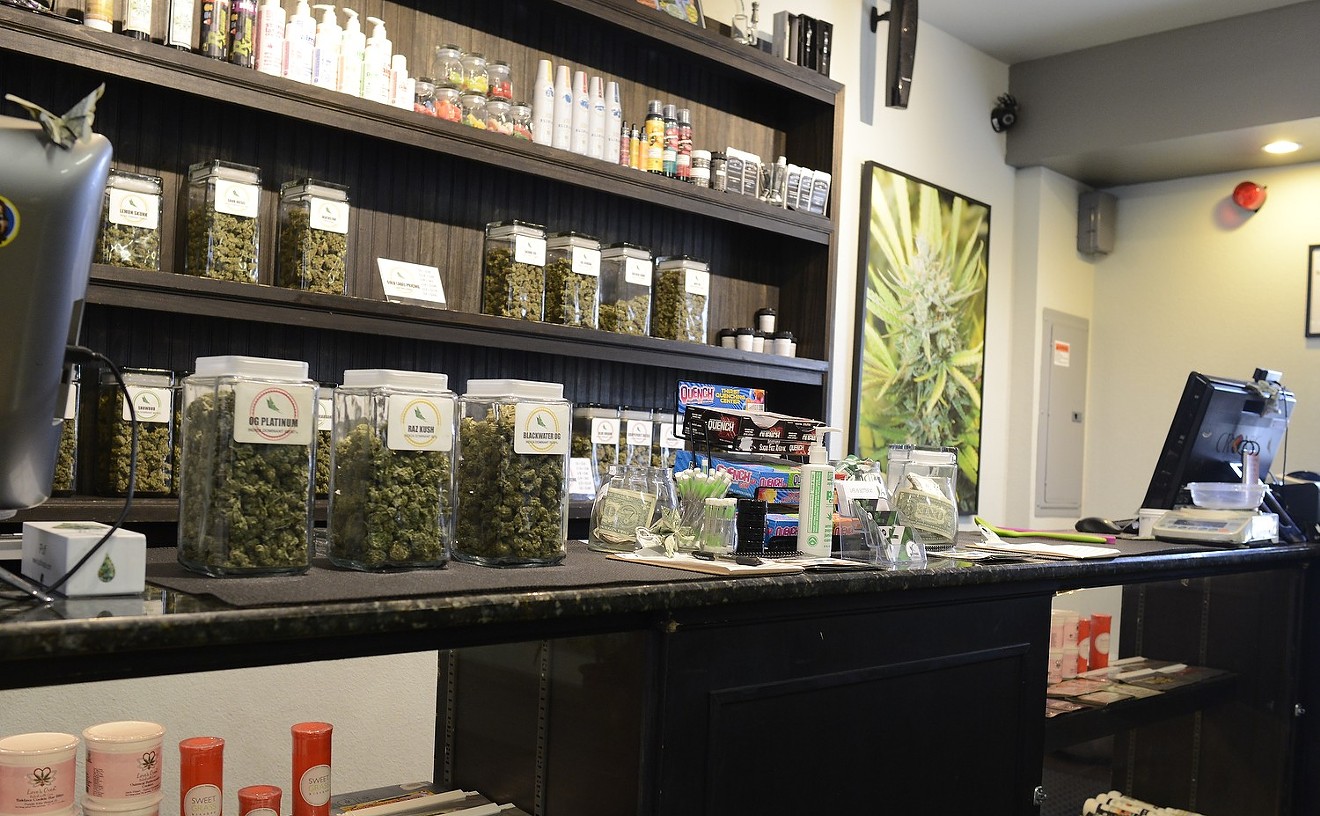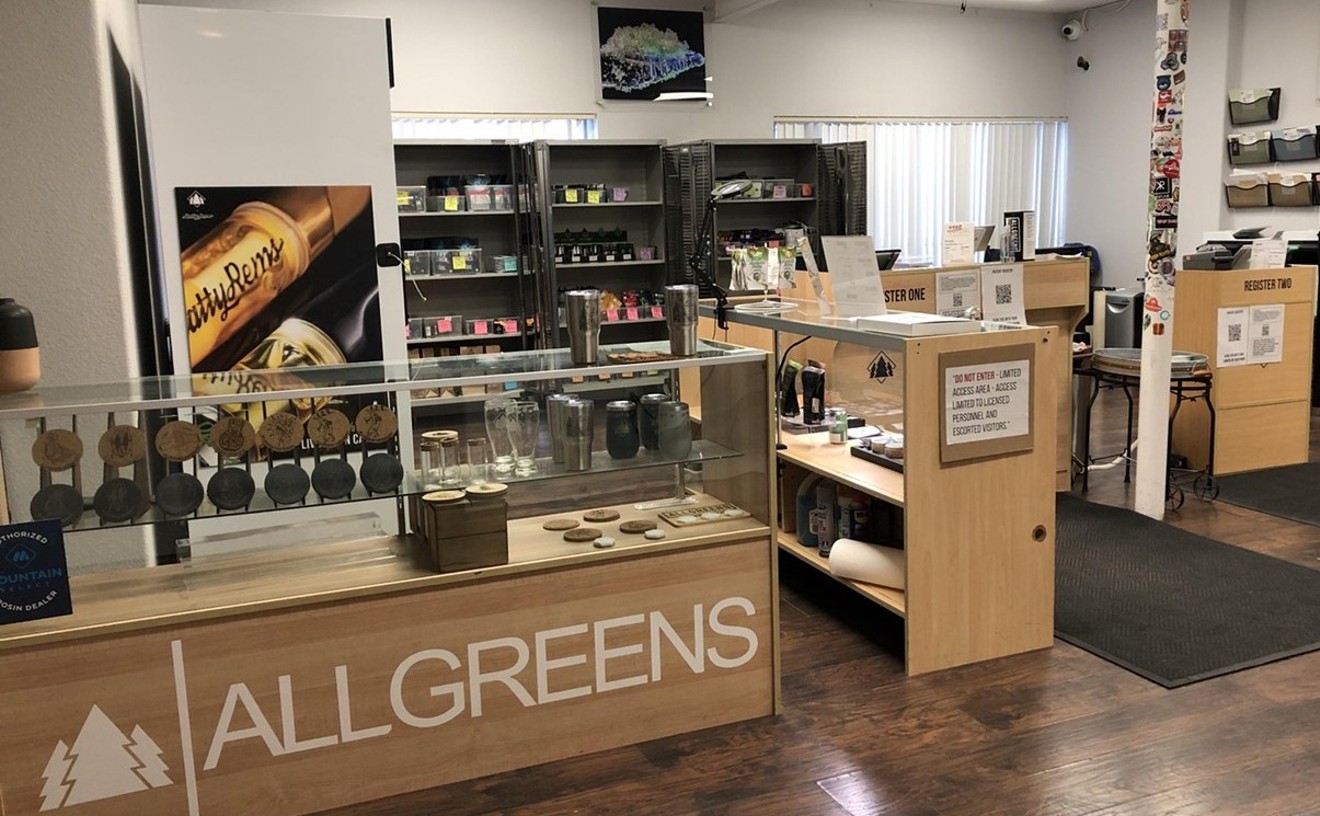Unfortunately, several of the most effective cannabis remedies for extreme pain aren't available at recreational dispensaries in Colorado because of their high production costs; current regulations don't allow others to be sold commercially. But there are still some good options out there to combat pain, including these five:
FECO Oil
Full extract cannabis oil — also known as FECO oil, or whole plant medicine — is one of the most effective medical marijuana concentrates for numerous afflictions; patients and extractors alike claim it can treat or even cure certain cancers, terminal illnesses and forms of diabetes while alleviating the discomfort associated with chemotherapy, cerebral palsy and other conditions that cause extreme pain.
Unlike butane hash and CO2 oils, FECO oil is made with grain alcohol or ethanol; unlike most concentrates sold at dispensaries, it isn't made for smoking or vaporization. FECO oil is traditionally consumed orally, with doses the size of a grain of rice administered via a syringe or in a pre-filled capsule. If you can't find a caregiver to make FECO oil for you, you can try making small amounts at home with grain alcohol (using explosive solvents like ethanol for home cannabis extraction is illegal in Colorado).
Rick Simpson Oil (RSO) is a cannabis concentrate commonly mistaken for FECO oil and used for much the same maladies, but RSO is made with isopropyl alcohol, while FECO is made with grain alcohol or ethanol.
Topicals
Cannabis topicals are lotions, balms and salves infused with cannabinoids that can treat pain, inflammation and skin disorders. They can be purchased at virtually every dispensary in Colorado (and health stores across the country, if made with hemp-derived CBD) or made at home with store-bought ingredients and CBD or THC extracts. Or both, preferably.
Because they're applied to the skin's surface, topicals are especially effective with muscle and joint pain. Another alluring aspect is that they're non-psychoactive and do not enter the bloodstream, so users won't get high or have to worry about failing a drug test at work. Transdermal patches infused with cannabinoids can provide similar relief, but THC and CBD enter the bloodstream with transdermal technology.

CBD isolate can't be purchased at dispensaries because of its lack of THC, but it can be bought online.
Flickr/WeedPornDaily
One of the most visually striking cannabis concentrates on the market thanks to its crystallized, powdery form, CBD isolate may look like a hard drug, but it's actually far from it. You can buy hemp-derived CBD online or at certain head shops and herbal supplement stores without visiting a dispensary, because hemp products are legal in all fifty states as a dietary supplement (though a Tennessee sheriff's department didn't seem to know that last month).
CBD isolate is the cannabinoid in its purest form, reaching 99 percent purity to treat pain, inflammation and sleeping disorders, among other conditions. The crystalline powder can be added to food and drinks for oral ingestion, but it's still widely smoked and vaporized, despite some states not allowing it be sold for that purpose. Either way, patients have been making their own CBD edibles, implementing the isolate into their THC medication or vaporizing it directly for immediate relief. Don't let the Breaking Bad looks scare you away: This is the most legal product on the list, as if that means anything.

Cannabis spray can freshen the mind and your lunch breath.
Shutterstock.com/Andrey_Popov
Like edibles and other oral ingestion methods, cannabis sublinguals won't hurt your lungs the way smoking and vaporizing will. What sets sublinguals apart from other ingestion methods, though, is the shorter time they take to kick in. Because they're administered in the sublingual cavity under the tongue, products such as tinctures and oral sprays enter the bloodstream in anywhere from thirty seconds to two minutes — but they don't last as long as edibles, either, so they must be used more frequently.
Cannabis-infused oral sprays are relatively new to dispensaries, but tinctures are quite popular and should be on the shelf at your local pot shop. If you don't have access to a dispensary, you can make tinctures at home with relative ease if you have patience.
Suppositories
Although they might create laughs when initially brought up, suppositories are one of the most effective forms of cannabis medication. FECO oil, Rick Simpson oil (RSO) and other potent medical concentrates are the most common types of extracts used in cannabis suppositories; the many blood vessels and capillaries in the rectum speed up and increase the absorption process while having under 25 percent of the psychoactive effects of edibles. Cannabis suppositories by Foria can be purchased at dispensaries, but they don't provide the same potent relief as those made with FECO or RSO.













